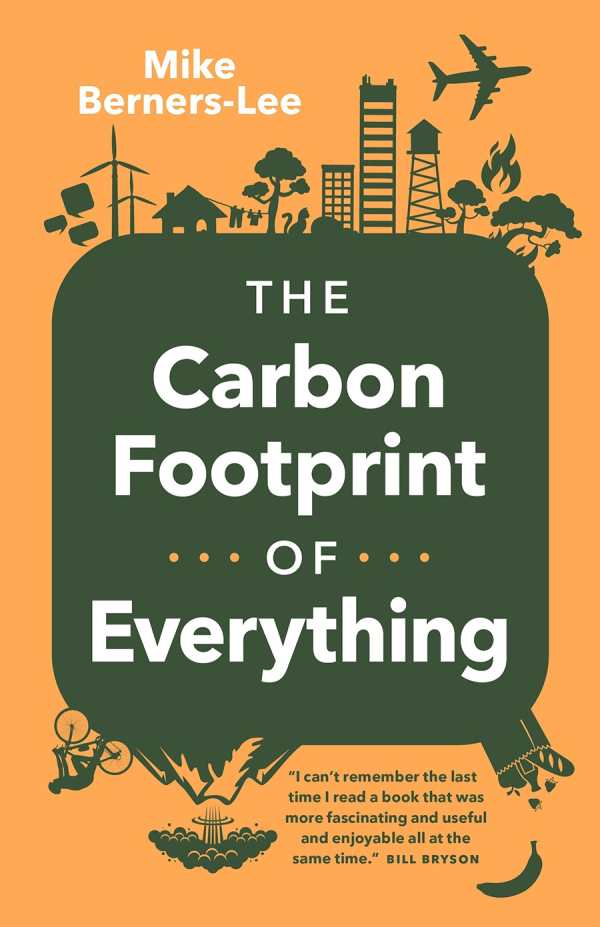The Carbon Footprint of Everything
Since this practical guide to the carbon footprint of everyday goods, foods, and activities was first published in 2010, global warming has only accelerated. Extensive updates reflecting ongoing science and climate change urgency make this revised edition a must for anyone interested in individual or collective action to reduce carbon emissions.
Mike Berners-Lee’s research into the full carbon impact of the production, use, and disposal of just under 100 common items discloses important and useful information. Organized from the most carbon-friendly forms of consumption (as of bananas and watching television) to the most egregious (including warfare and car crashes), there are many surprises. For instance, electric bikes are more carbon-friendly than conventional bicycles, given how much carbon-based fuel is required to power our inefficient, carbon-based legs. Details about diapers, plastic bags, and dishwashing also unearth counterintuitive results, even as consumers are cautioned to consider their other adverse environmental impacts.
Helpful graphics, references, and food and shopping list appendices back up this approachable, engaging survey of our unsustainable global actions. The book is designed for dipping into and flipping through, with frequent dashes of humor lightening its weighty topic. Its concluding chapters share constructive strategies for magnifying individual lifestyle changes, like supporting groups that work on negative carbon emissions projects, or working for systemic changes in corporate and government sectors.
Some popular subjects come under Berners-Lee’s incisive scrutiny. Holiday flights, cheese, bottled water (“an avoidable disaster that keeps on growing”), and even our children and pets have significant carbon impacts. His personal reflections about these topics are engaging and give pause about what we consume and do—and what trade-offs we are willing to make at home and work.
No matter how environmentally conscious one may already be, this enlightening book will force reconsiderations of how to wean ourselves off of fossil fuels.
Reviewed by
Rachel Jagareski
Disclosure: This article is not an endorsement, but a review. The publisher of this book provided free copies of the book to have their book reviewed by a professional reviewer. No fee was paid by the publisher for this review. Foreword Reviews only recommends books that we love. Foreword Magazine, Inc. is disclosing this in accordance with the Federal Trade Commission’s 16 CFR, Part 255.

